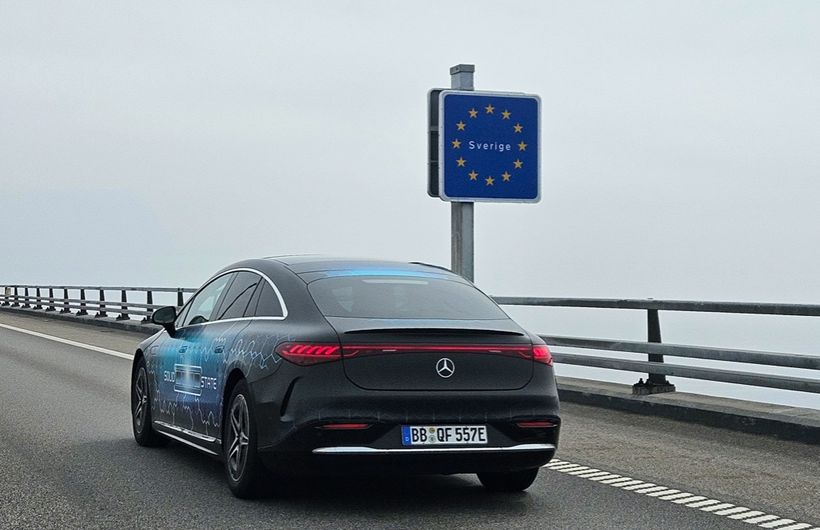A Mercedes EQS prototype fitted with a lithium-metal solid-state battery has completed a 1,205-kilometer trip from Stuttgart in Germany to Malmö in Sweden without a single charging stop. It arrived in Malmö with a remaining range of 137 km, suggesting a total of 834 miles is possible.
The drive from Stuttgart to Malmö was part of a comprehensive validation program for solid-state battery technology at Mercedes-Benz which includes real-world conditions on public roads. The goal is to assess overall vehicle performance across different climate zones and route profiles and accelerate the path to production.
The route followed highways A7 and E20 through Germany and Denmark to Sweden. The optimal route was calculated using Electric Intelligence, factoring in topography, traffic, ambient temperature, and energy needs for heating and cooling — without using ferries.
“The solid-state battery is a true gamechanger for electric mobility. With the successful long-distance drive of the EQS, we show that this technology delivers not only in the lab but also on the road. Our goal is to bring innovations like this into series production by the end of the decade and offer our customers a new level of range and comfort,”
said Markus Schäfer, Member of the Board of Management of Mercedes‑Benz Group AG, Chief Technology Officer, Development & Procurement.
The solid-state battery system was developed in close collaboration with Mercedes-AMG High Performance Powertrains (HPP), the Formula 1 technology centre of the Mercedes-Benz Group in Brixworth, UK.
The usable energy content of the battery was increased by 25%, while the weight and size of the battery remain comparable to the standard EQS battery. Additional weight and energy efficiency is achieved through passive airflow cooling.
Mercedes might be beaten to being the first with the tech however. Other car makers including Nissan, Toyota and Volkswagen have said they are expecting to have solid state equipped cars by 2028, and Chinese makers might beat this deadline.
 The Merc made it to Sweden with plenty of range to spare
The Merc made it to Sweden with plenty of range to spare 











